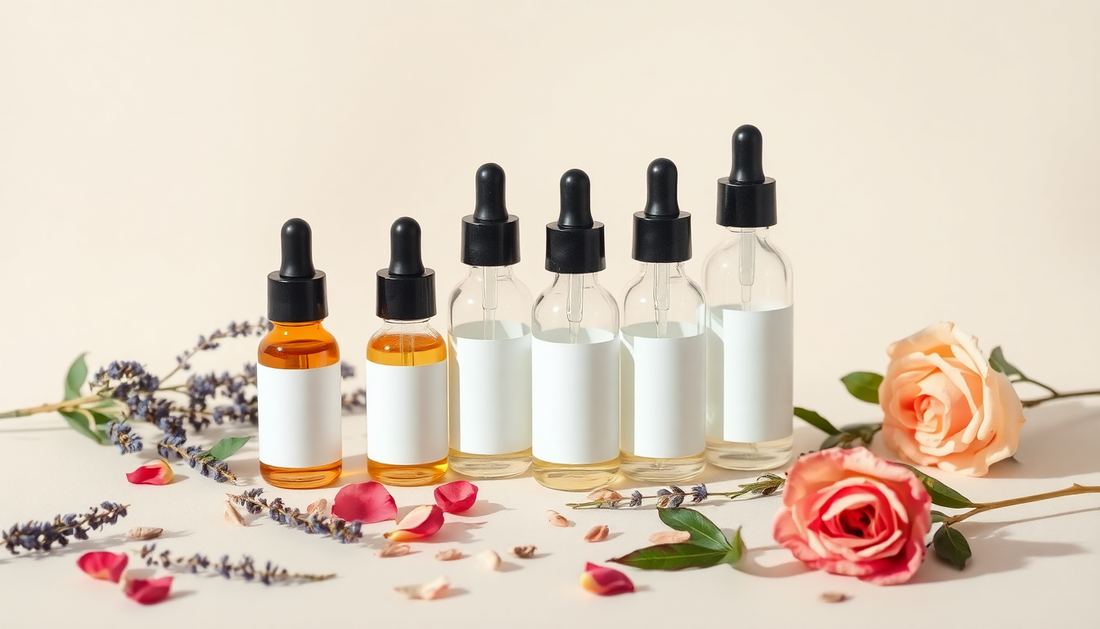
The Ultimate Guide to Choosing Natural Oils for Every Skin Type
Share
Discover the power of natural facial oils and how to choose the perfect one for your unique skin type. Whether you have dry, oily, sensitive, or combination skin, this comprehensive guide will help you unlock the benefits of clean, plant-based skincare.
Understanding Skin Types
Before we dive into the world of natural oils, it's essential to understand the different skin types and their characteristics. This knowledge will be the foundation for selecting the right oil that will nourish and balance your complexion.
Dry Skin
Individuals with dry skin often experience tightness, flakiness, and a dull, lackluster appearance. This skin type typically lacks the natural oils and lipids needed to maintain a healthy, hydrated barrier.
Oily Skin
Oily skin is characterized by a shiny, greasy appearance, enlarged pores, and a tendency to develop blemishes and breakouts. This skin type produces an excess of sebum, the natural oil that keeps the skin moisturized.
Sensitive Skin
Sensitive skin is easily irritated and can react to a variety of environmental factors, such as harsh weather, certain ingredients, or even stress. This skin type may experience redness, inflammation, and discomfort.
Combination Skin
Combination skin is a blend of both dry and oily areas, typically with an oily T-zone (forehead, nose, and chin) and drier cheeks and jawline.
Best Natural Oils by Skin Type
Now that you understand your skin type, let's explore the natural oils that can best address your specific needs.
Oils for Dry Skin
Argan oil, rich in vitamin E and fatty acids, is an excellent choice for dry skin. It deeply nourishes and helps restore the skin's natural barrier. Rosehip seed oil is another fantastic option, as it is packed with antioxidants and can improve skin's hydration and radiance.
Oils for Oily Skin
Jojoba oil is a remarkable choice for oily skin, as it closely mimics the skin's natural sebum, helping to regulate oil production and minimize the appearance of pores. Grapeseed oil is also a lightweight, non-comedogenic (non-pore-clogging) option that can help control shine without over-drying the skin.
Oils for Acne-Prone Skin
Tea tree oil and its antibacterial properties can be beneficial for acne-prone skin, helping to reduce inflammation and blemishes. Likewise, hemp seed oil is rich in omega-3 and omega-6 fatty acids, which can help soothe and calm breakouts.
Oils for Sensitive Skin
Chamomile oil and its soothing, anti-inflammatory properties make it an excellent choice for sensitive skin types. Likewise, calendula oil can help reduce redness and irritation, making it a gentle, nourishing option.
How to Use Face Oils Properly
Incorporating natural oils into your skincare routine can be a game-changer, but it's important to use them correctly. Here are some tips for getting the most out of your facial oils:
Application Techniques
Gently massage a few drops of oil between your palms, then press and pat the oil into your skin, focusing on areas that need extra nourishment. Avoid rubbing the oil, as this can disrupt the skin's barrier.
Frequency of Use
Start by using your chosen facial oil once or twice a week, then gradually increase the frequency as your skin adjusts. Oily and combination skin types may benefit from using oils only a few times per week, while dry skin types can use them daily.
Combining with Other Products
Face oils can be used in conjunction with other skincare products, such as serums, moisturizers, and even makeup. Apply the oil as the last step in your routine to seal in the benefits of the other products.
Essential Oils vs. Carrier Oils
It's important to understand the difference between essential oils and carrier oils, as they serve different purposes in natural skincare.
Essential Oils
Essential oils are highly concentrated, aromatic plant extracts that offer a wide range of therapeutic benefits. However, they are typically too potent to be used directly on the skin and should be diluted in a carrier oil.
Carrier Oils
Carrier oils, such as the ones mentioned earlier, are the base oils that dilute and "carry" the essential oils, making them safe for topical application. Carrier oils also provide their own nourishing properties for the skin.
When creating your own natural skincare blends, be sure to research the safety and compatibility of any essential oils you plan to use, and always start with a small concentration to test your skin's tolerance.
Clean Beauty and Eco-Friendly Skincare
As you explore the world of natural facial oils, it's important to prioritize clean, eco-friendly products that align with your values. Look for brands that use sustainable, ethically sourced ingredients and avoid synthetic additives, parabens, and other potentially harmful chemicals.
By choosing natural, plant-based oils, you can not only nourish your skin but also support a more sustainable, environmentally conscious beauty industry.
Conclusion
Unlocking the power of natural facial oils can be a transformative step in your skincare journey. By understanding your unique skin type and selecting the right oils, you can achieve a healthy, radiant complexion that glows from the inside out. Embrace the purity of nature and live Naturally.
